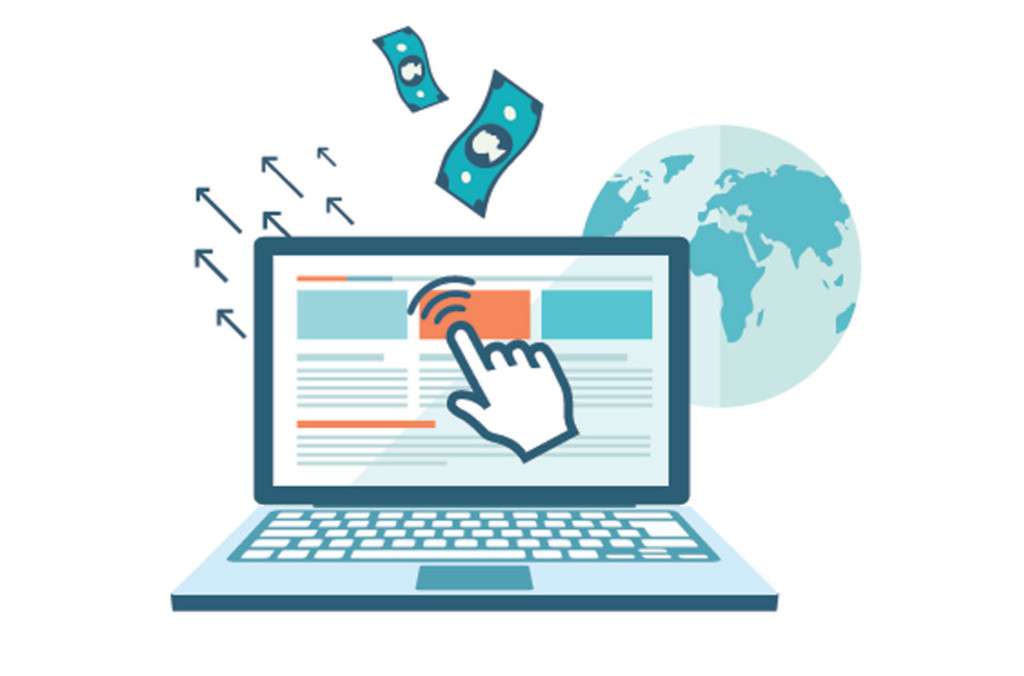 Pay per click (PPC) is a valuable strategy that savvy PR agencies and corporate PR departments include in their repertoire. While PR does not traditionally include advertising in its services, knowledgeable PR teams now supplement their activities with PPC ads.
Pay per click (PPC) is a valuable strategy that savvy PR agencies and corporate PR departments include in their repertoire. While PR does not traditionally include advertising in its services, knowledgeable PR teams now supplement their activities with PPC ads.
Google AdWords is the most popular PPC advertising platform, but not the only one. Businesses bid on selected keywords in order for their ads to appear in search results and pay a flat fee when viewers click on the ad. After clicking on the ad, potential customers are directed to a landing page where they complete a purchase or some kind of lead generation activity. Designing successful PPC campaigns and landing pages that convert are crucial digital marketing and PR skills.
Experts cite several advantages for combining PPC with PR. PPC can help improve:
Reputation management. PPC can counter negative comments on social media and online review boards. By bidding on less competitive and conversion-centric branded keywords, a company can improve its search engine results, explains digital marketing agency Mabbly. Consumers will see the company’s message at the top of search results instead of finding unfavorable reviews. The landing page from the paid ad can explain the company’s position in detail.
PR crisis management. Proactively managing paid search accounts and re-evaluating ad messages is crucial during a PR crisis. Consider targeting new keywords, such as “review” or “complaints” combined with the brand name, and add new links from the ads to direct interested people to the company’s landing page that explains the crisis and what the company is doing to solve it.
“The PR teams should be able to collaborate on the PPC ad messaging, review the proposed ads and so on to ensure it’s a concerted effort across all communication channels,” recommends Pauline Jakober in Search Engine Watch.
Media pitching. PPC targeting capabilities allows PR pros to place their messages in front of small numbers of journalists — or even a single journalist. “The ability to target people based on their employment, income, age, location, interests, past purchases and more opens the door to a whole new world of online PR,” writes Larry Kim, founder and CTO of WordStream, in a Search Engine Land article. Kim explains how he won media coverage from several major publications for a total of $50 in PPC advertising.
Promotion of corporate announcements. PPC ads can be used to generate more views of important corporate announcements. The announcement headline can often be adapted for the ad copy – delivering the key story message right in the ad that is likely to receive thousands of impressions.
Website traffic. Although Google asserts that paid search does not influence organic (non-paid) search results, PPC can increase brand awareness and PPC produces results faster. Experts recommend aligning SEO and PPC for best results.
PR Agencies as a PPC Option
While businesses often perform their own PPC, hiring a PPC specialist or PR agency experienced in PPC advertising is often preferable. “Good PR firms and marketing professionals are immersed in the ever-changing keyword market, and the strengths and weaknesses of other businesses competing for Ad Rankings,” states Ronn Torossian, CEO of 5W Public Relations, for EverythingPR. “Use of PPC advertisements are an on-demand market requiring time and ongoing effort to understand. PR agencies know a variety of methods and tricks to mix and match organic SEO with PPC.”
Bottom Line: PPC advertising can provide several PR benefits. Savvy PR teams use PPC ads for PR crisis management, media pitching and improving brand awareness and website traffic.
William J. Comcowich founded and served as CEO of CyberAlert LLC, the predecessor of Glean.info. He is currently serving as Interim CEO and member of the Board of Directors. Glean.info provides customized media monitoring, media measurement and analytics solutions across all types of traditional and social media.





Very good written information. It will be supportive to anybody who uses it, as well as myself. Keep up the good work – looking forward to more posts.